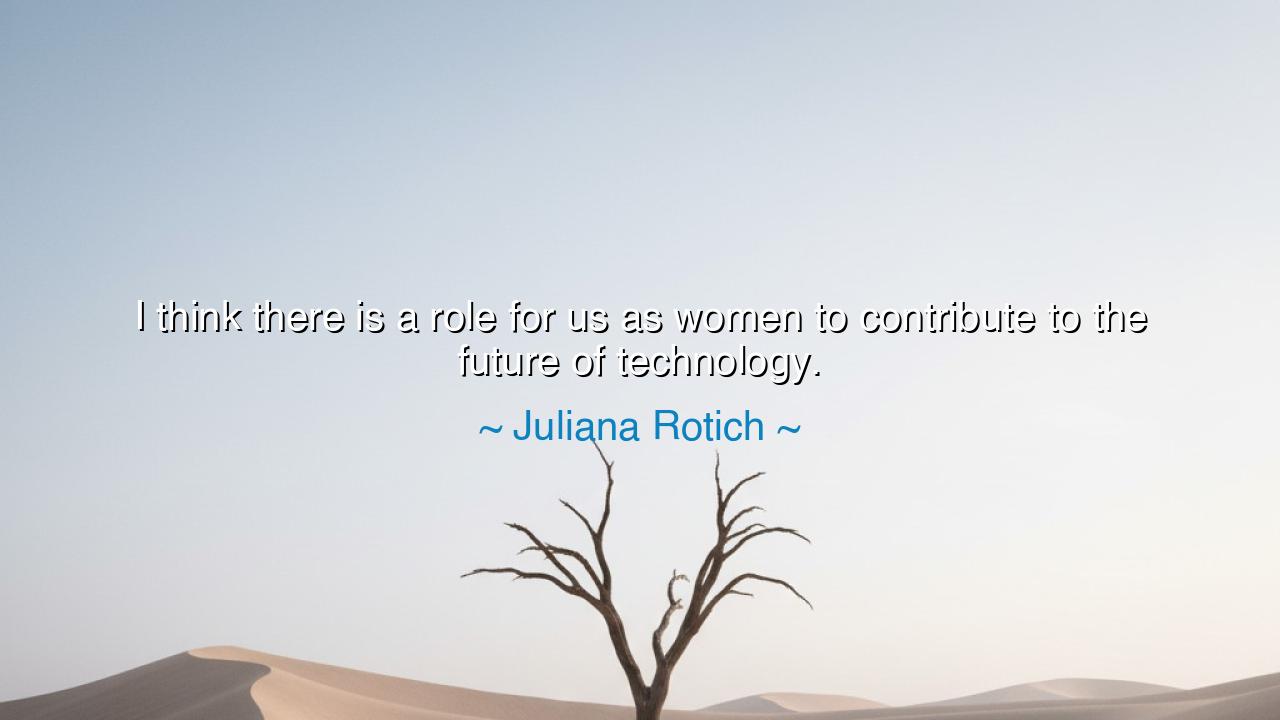
I think there is a role for us as women to contribute to the






Hear the voice of Juliana Rotich, spoken with vision and with fire: “I think there is a role for us as women to contribute to the future of technology.” These words are not merely a statement, but a call to arms—a reminder that the shaping of the future cannot, and must not, be left to only one half of humanity. They speak of duty, of opportunity, and of destiny. For just as women have nurtured, built, and guided civilizations in every age, so too must they now claim their rightful place in the building of the digital and technological worlds that lie ahead.
When Rotich names a role, she acknowledges that the story of innovation is not complete. Too often, the histories of science and invention have celebrated only a few names, forgetting the many women who toiled in shadow, their contributions unrecorded, their genius overlooked. Yet their hands were there: in the coding of early computers, in the calculations that sent men to the moon, in the quiet revolutions of medicine and engineering. The role has always existed; it is not given, it is claimed. Rotich’s words shine as a beacon to remind us that the future of technology must be written with voices from every corner of humanity.
Consider the story of Ada Lovelace, who in the nineteenth century looked upon Charles Babbage’s machine and saw more than numbers—she saw poetry woven into calculation. She became the first to envision the computer as a tool not just for arithmetic but for creativity. Or recall Katherine Johnson, whose calculations guided NASA’s astronauts through the heavens. These women, though often unrecognized in their time, embody the truth of Rotich’s vision: women’s minds are not only capable of shaping the future of technology—they already have, and they will again.
Her words are also a call to courage. For to step into technology is not always to walk an easy road. It demands perseverance in the face of doubt, resilience in the face of exclusion, and strength in the face of systems that may resist change. But as every generation has shown, women who take their place in the halls of power and invention do not come merely to join—they come to transform. They bring perspectives forged in struggle, empathy sharpened by experience, and creativity born from necessity. These are not additions to technology; they are its renewal.
Rotich’s declaration also reminds us of balance. Technology without inclusivity becomes narrow, blind to the richness of the human condition. A bridge designed without considering all who must cross it will fail; so too will a digital future built without the wisdom and vision of women. To contribute is not simply to add, but to expand the very horizon of possibility. When women take their place in shaping the future of technology, they bring balance to the scales, and in that balance lies true progress.
The lesson for us is this: no voice should be silent in the building of tomorrow. Every woman who dares to learn, to code, to invent, to lead, is answering this call. And every man who makes space, who amplifies, who stands as ally, is part of the same work. The future of technology belongs not to the few, but to the many—to those who recognize that diversity of thought is the engine of innovation, and that justice in opportunity is the soil in which progress grows.
Practically, this means encouraging girls to explore science and engineering without fear, supporting women innovators with resources and recognition, and building systems where their contributions are not erased but celebrated. It means ensuring that when decisions about the digital world are made, women are present not as tokens, but as leaders. For to deny this is to weaken the foundation of the future; but to embrace it is to build a world both stronger and more humane.
Thus, the words of Juliana Rotich endure as a banner lifted high: “There is a role for us as women to contribute to the future of technology.” Let them ring as a summons across generations, reminding us that the destiny of innovation is not the work of one people, nor one gender, but of all. And let every woman who hears them know: the role is waiting, the time is now, and the future will be brighter because of your hand upon it.






AAdministratorAdministrator
Welcome, honored guests. Please leave a comment, we will respond soon